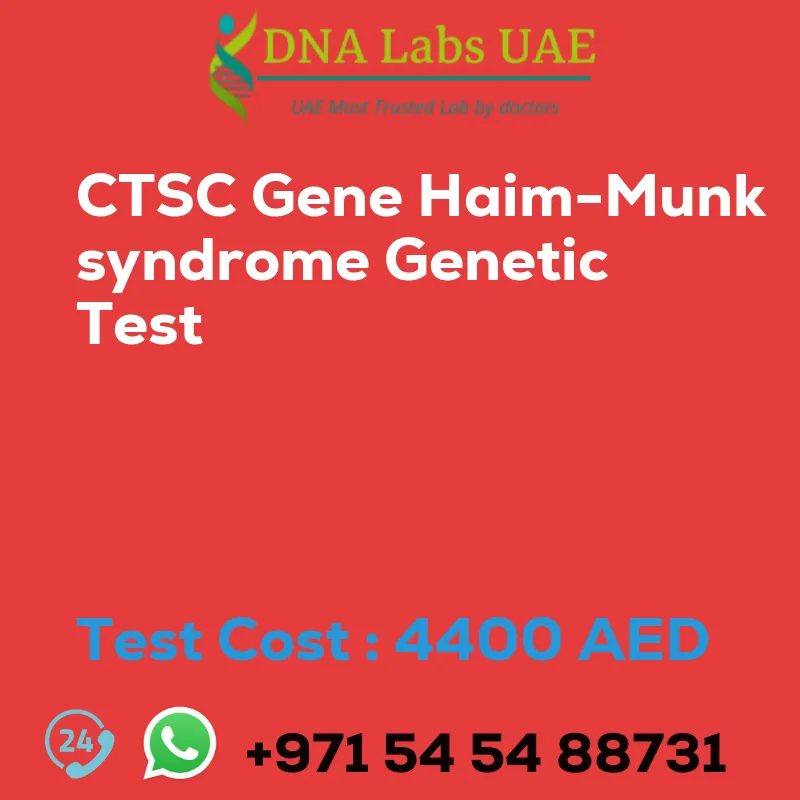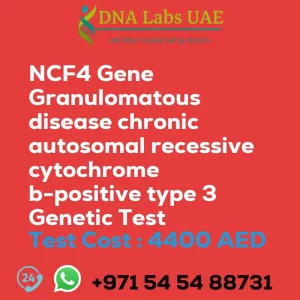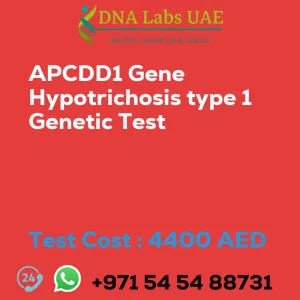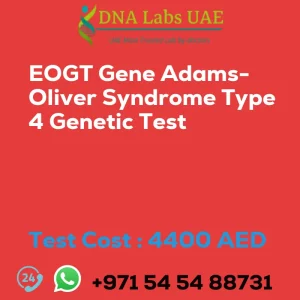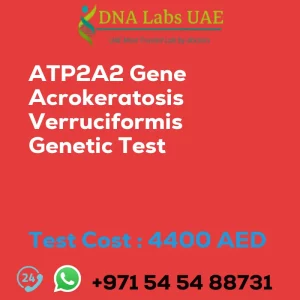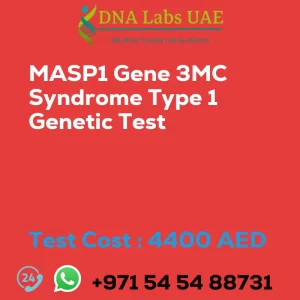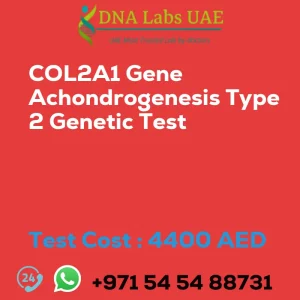CTSC Gene Haim-Munk Syndrome Genetic Test
Test Name: CTSC Gene Haim-Munk Syndrome Genetic Test
Components: Blood or Extracted DNA or One drop Blood on FTA Card
Price: 4400.0 AED
Report Delivery: 3 to 4 Weeks
Method: NGS Technology
Test Type: Osteology Dermatology Immunology Disorders
Doctor: Dermatologist
Test Department: Genetics
Pre Test Information: Clinical History of Patient who is going for CTSC Gene Haim-Munk Syndrome NGS Genetic DNA Test. A Genetic Counselling session to draw a pedigree chart of family members affected with CTSC Gene Haim-Munk Syndrome NGS Genetic DNA Test gene CTSC.
Test Details:
CTSC Gene Haim-Munk Syndrome NGS Genetic Test is a genetic test that analyzes the CTSC gene for mutations associated with Haim-Munk Syndrome. Haim-Munk Syndrome is a rare autosomal recessive disorder characterized by palmoplantar keratoderma (thickening of the skin on the palms and soles), severe periodontitis (inflammation and loss of the tissues surrounding the teeth), and other symptoms such as acro-osteolysis (resorption of the bones in the hands and feet) and onychogryphosis (abnormal nail growth).
The NGS (Next-Generation Sequencing) genetic test is a high-throughput sequencing method that can analyze multiple genes simultaneously, providing a comprehensive analysis of the CTSC gene. This test can detect mutations, deletions, or duplications in the CTSC gene that may be responsible for Haim-Munk Syndrome.
The CTSC gene encodes the enzyme cathepsin C, which plays a role in the immune response and the breakdown of proteins. Mutations in the CTSC gene can lead to a loss of enzyme function, causing the symptoms associated with Haim-Munk Syndrome.
The NGS genetic test for CTSC gene mutations can help in the diagnosis of Haim-Munk Syndrome, allowing for early intervention and management of the condition. It can also be used for carrier testing in individuals with a family history of the disorder.
It is important to note that genetic testing should be performed and interpreted by healthcare professionals trained in genetics, as the results may have implications for the individual and their family members. Genetic counseling is often recommended before and after genetic testing to discuss the benefits, limitations, and potential consequences of the test.
| Test Name | CTSC Gene Haim-Munk syndrome Genetic Test |
|---|---|
| Components | |
| Price | 4400.0 AED |
| Sample Condition | Blood or Extracted DNA or One drop Blood on FTA Card |
| Report Delivery | 3 to 4 Weeks |
| Method | NGS Technology |
| Test type | Osteology Dermatology Immunology Disorders |
| Doctor | Dermatologist |
| Test Department: | Genetics |
| Pre Test Information | Clinical History of Patient who is going for CTSC Gene Haim-Munk syndrome NGS Genetic DNA Test. A Genetic Counselling session to draw a pedigree chart of family members affected with CTSC Gene Haim-Munk syndrome NGS Genetic DNA Test gene CTSC |
| Test Details |
CTSC Gene Haim-Munk syndrome NGS Genetic Test is a genetic test that analyzes the CTSC gene for mutations associated with Haim-Munk syndrome. Haim-Munk syndrome is a rare autosomal recessive disorder characterized by palmoplantar keratoderma (thickening of the skin on the palms and soles), severe periodontitis (inflammation and loss of the tissues surrounding the teeth), and other symptoms such as acro-osteolysis (resorption of the bones in the hands and feet) and onychogryphosis (abnormal nail growth). The NGS (Next-Generation Sequencing) genetic test is a high-throughput sequencing method that can analyze multiple genes simultaneously, providing a comprehensive analysis of the CTSC gene. This test can detect mutations, deletions, or duplications in the CTSC gene that may be responsible for Haim-Munk syndrome. The CTSC gene encodes the enzyme cathepsin C, which plays a role in the immune response and the breakdown of proteins. Mutations in the CTSC gene can lead to a loss of enzyme function, causing the symptoms associated with Haim-Munk syndrome. The NGS genetic test for CTSC gene mutations can help in the diagnosis of Haim-Munk syndrome, allowing for early intervention and management of the condition. It can also be used for carrier testing in individuals with a family history of the disorder. It is important to note that genetic testing should be performed and interpreted by healthcare professionals trained in genetics, as the results may have implications for the individual and their family members. Genetic counseling is often recommended before and after genetic testing to discuss the benefits, limitations, and potential consequences of the test. |

